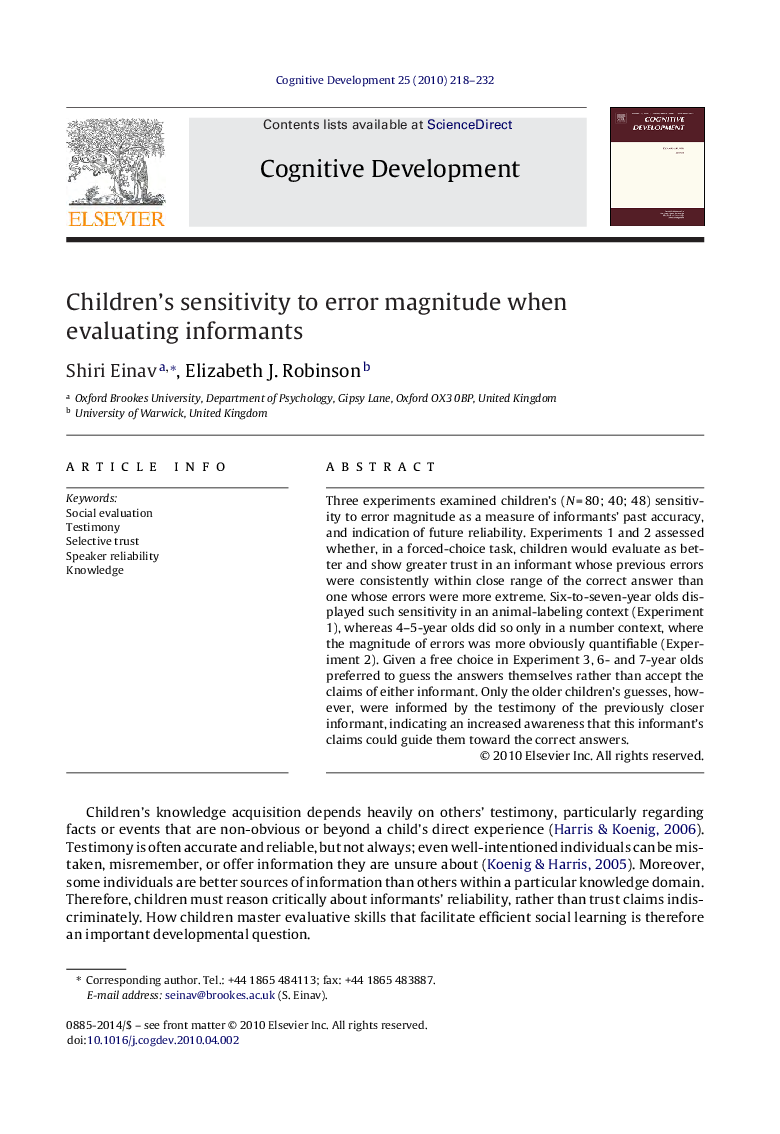| Article ID | Journal | Published Year | Pages | File Type |
|---|---|---|---|---|
| 916645 | Cognitive Development | 2010 | 15 Pages |
Three experiments examined children's (N = 80; 40; 48) sensitivity to error magnitude as a measure of informants’ past accuracy, and indication of future reliability. Experiments 1 and 2 assessed whether, in a forced-choice task, children would evaluate as better and show greater trust in an informant whose previous errors were consistently within close range of the correct answer than one whose errors were more extreme. Six-to-seven-year olds displayed such sensitivity in an animal-labeling context (Experiment 1), whereas 4–5-year olds did so only in a number context, where the magnitude of errors was more obviously quantifiable (Experiment 2). Given a free choice in Experiment 3, 6- and 7-year olds preferred to guess the answers themselves rather than accept the claims of either informant. Only the older children's guesses, however, were informed by the testimony of the previously closer informant, indicating an increased awareness that this informant's claims could guide them toward the correct answers.
